Catholijn Jonker
Fairness-Aware Reinforcement Learning (FAReL): A Framework for Transparent and Balanced Sequential Decision-Making
Sep 26, 2025Abstract:Equity in real-world sequential decision problems can be enforced using fairness-aware methods. Therefore, we require algorithms that can make suitable and transparent trade-offs between performance and the desired fairness notions. As the desired performance-fairness trade-off is hard to specify a priori, we propose a framework where multiple trade-offs can be explored. Insights provided by the reinforcement learning algorithm regarding the obtainable performance-fairness trade-offs can then guide stakeholders in selecting the most appropriate policy. To capture fairness, we propose an extended Markov decision process, $f$MDP, that explicitly encodes individuals and groups. Given this $f$MDP, we formalise fairness notions in the context of sequential decision problems and formulate a fairness framework that computes fairness measures over time. We evaluate our framework in two scenarios with distinct fairness requirements: job hiring, where strong teams must be composed while treating applicants equally, and fraud detection, where fraudulent transactions must be detected while ensuring the burden on customers is fairly distributed. We show that our framework learns policies that are more fair across multiple scenarios, with only minor loss in performance reward. Moreover, we observe that group and individual fairness notions do not necessarily imply one another, highlighting the benefit of our framework in settings where both fairness types are desired. Finally, we provide guidelines on how to apply this framework across different problem settings.
Improving Confidence in the Estimation of Values and Norms
Apr 02, 2020
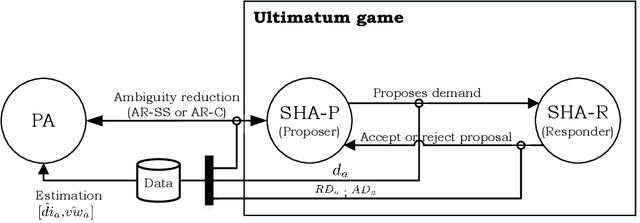
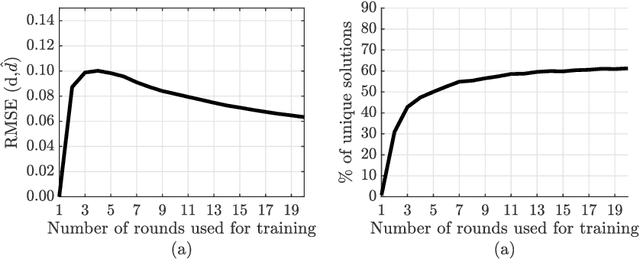

Abstract:Autonomous agents (AA) will increasingly be interacting with us in our daily lives. While we want the benefits attached to AAs, it is essential that their behavior is aligned with our values and norms. Hence, an AA will need to estimate the values and norms of the humans it interacts with, which is not a straightforward task when solely observing an agent's behavior. This paper analyses to what extent an AA is able to estimate the values and norms of a simulated human agent (SHA) based on its actions in the ultimatum game. We present two methods to reduce ambiguity in profiling the SHAs: one based on search space exploration and another based on counterfactual analysis. We found that both methods are able to increase the confidence in estimating human values and norms, but differ in their applicability, the latter being more efficient when the number of interactions with the agent is to be minimized. These insights are useful to improve the alignment of AAs with human values and norms.
Intra-Team Strategies for Teams Negotiating Against Competitor, Matchers, and Conceders
Apr 16, 2016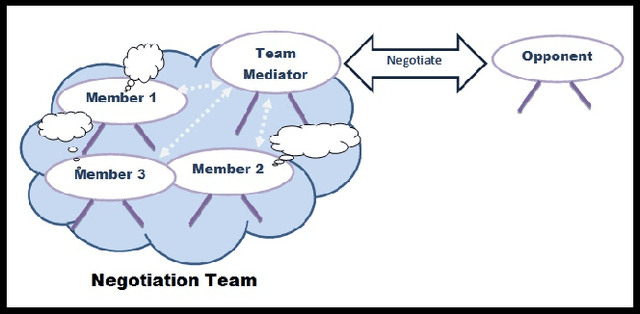
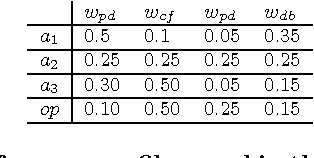
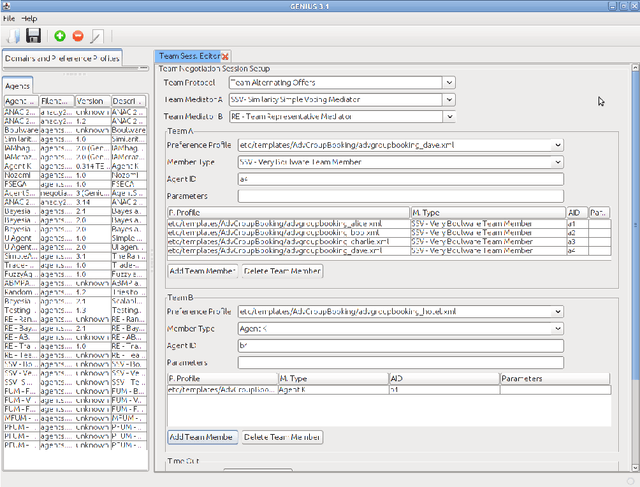

Abstract:Under some circumstances, a group of individuals may need to negotiate together as a negotiation team against another party. Unlike bilateral negotiation between two individuals, this type of negotiations entails to adopt an intra-team strategy for negotiation teams in order to make team decisions and accordingly negotiate with the opponent. It is crucial to be able to negotiate successfully with heterogeneous opponents since opponents' negotiation strategy and behavior may vary in an open environment. While one opponent might collaborate and concede over time, another may not be inclined to concede. This paper analyzes the performance of recently proposed intra-team strategies for negotiation teams against different categories of opponents: competitors, matchers, and conceders. Furthermore, it provides an extension of the negotiation tool Genius for negotiation teams in bilateral settings. Consequently, this work facilitates research in negotiation teams.
Unanimously acceptable agreements for negotiation teams in unpredictable domains
Apr 16, 2016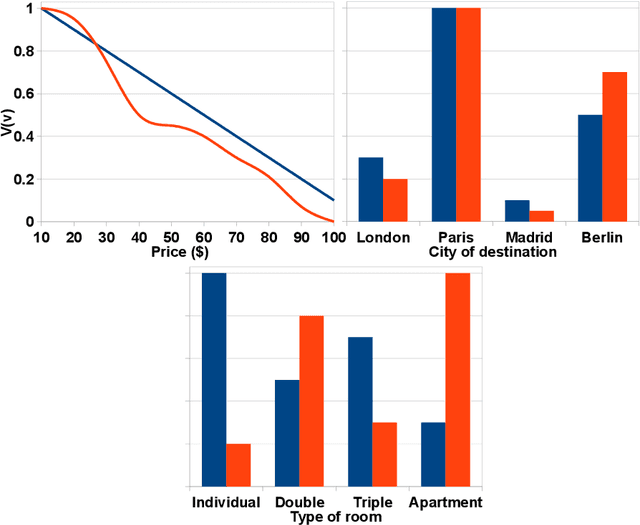

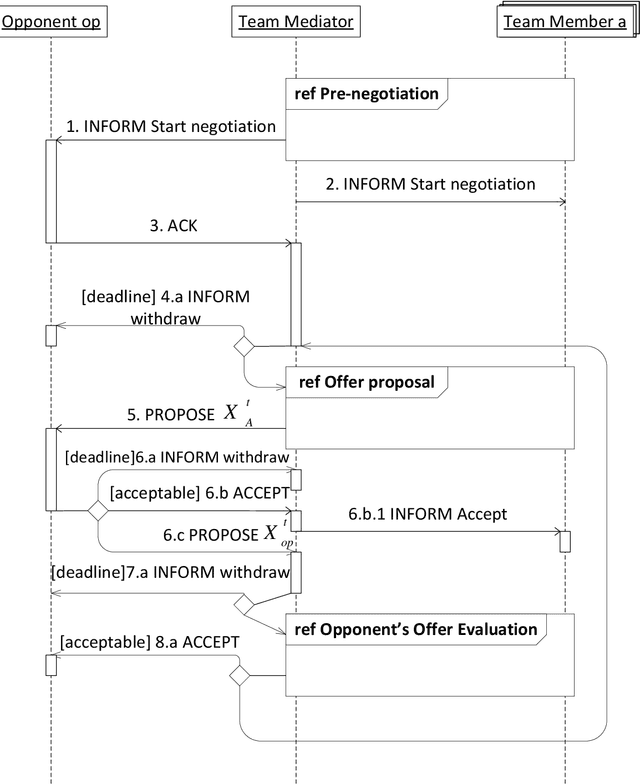

Abstract:A negotiation team is a set of agents with common and possibly also conflicting preferences that forms one of the parties of a negotiation. A negotiation team is involved in two decision making processes simultaneously, a negotiation with the opponents, and an intra-team process to decide on the moves to make in the negotiation. This article focuses on negotiation team decision making for circumstances that require unanimity of team decisions. Existing agent-based approaches only guarantee unanimity in teams negotiating in domains exclusively composed of predictable and compatible issues. This article presents a model for negotiation teams that guarantees unanimous team decisions in domains consisting of predictable and compatible, and also unpredictable issues. Moreover, the article explores the influence of using opponent, and team member models in the proposing strategies that team members use. Experimental results show that the team benefits if team members employ Bayesian learning to model their teammates' preferences.
 Add to Chrome
Add to Chrome Add to Firefox
Add to Firefox Add to Edge
Add to Edge